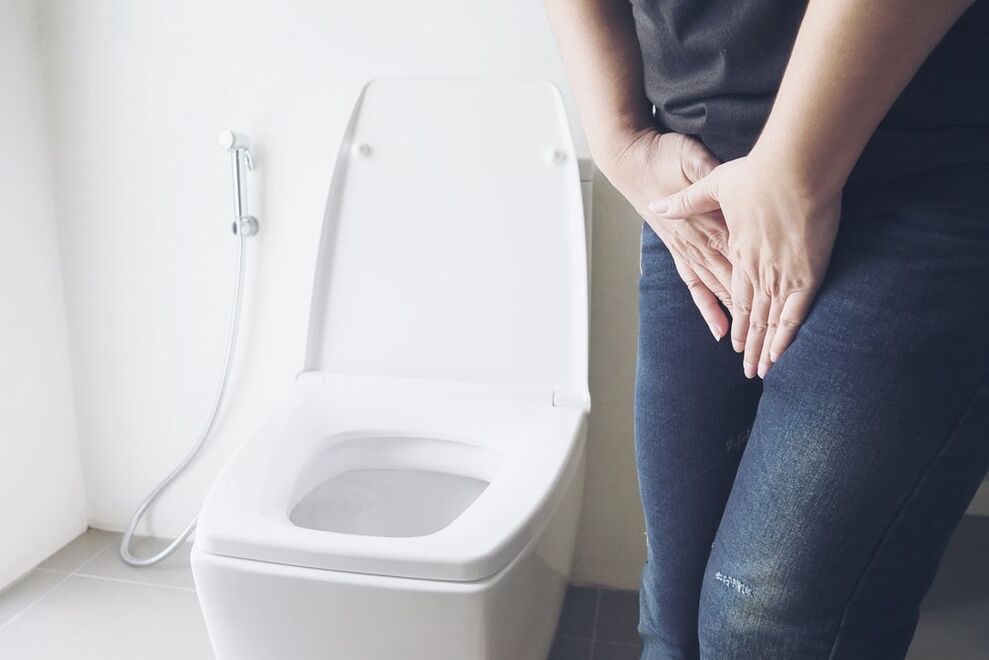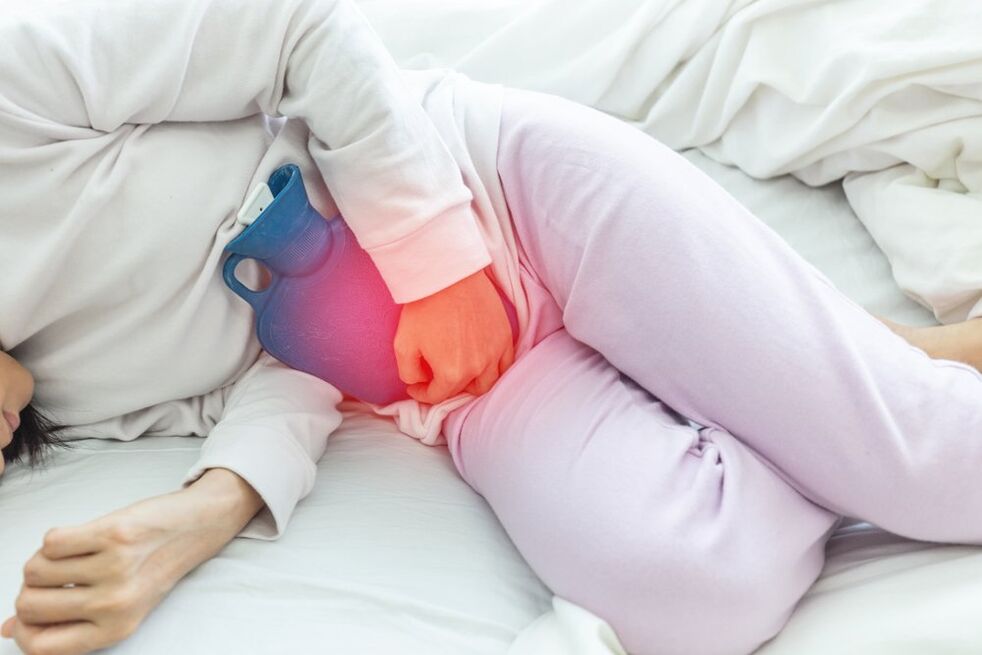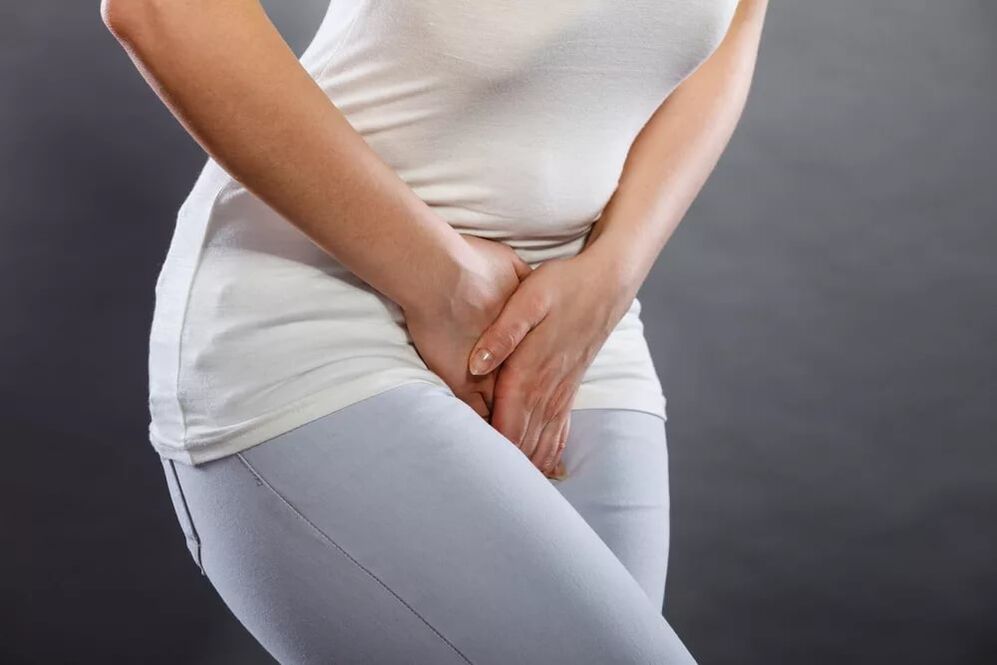
According to statistics, cystitis in women is more common than in men, which is explained by physiological differences in the structure of the urethra. This disease is usually accompanied by various unpleasant symptoms: pain and pain when urinating, frequent urination, and pain in the lower abdomen.
Cystitis is a common disease of the urinary system. It is largely due to the peculiarities of the anatomical structure, which is why cystitis in women is more common than in men.
What are the causes and first signs of cystitis in women? What are the main symptoms of female cystitis? What types of cystitis are isolated? Which doctor treats cystitis and how is the disease treated at home? Is it possible to prevent the development of cystitis, and what should be done for this?
Cystitis in women: is it necessary to make an appointment with a doctor?

Cystitis in women can be caused by various infectious diseases, helminthic invasion, bladder stones, the onset of menopause, disorders of the endocrine system, and taking certain medications. In addition, there is interstitial cystitis, the exact mechanism of which has not yet been explained.
It should also be noted that cystitis in women can be acute or chronic. The chronic form is characterized by both frequent relapses of the disease and the slow and persistent manifestation of symptoms.
To prevent the disease from becoming a source of constant discomfort, it is necessary to make an appointment with a doctor at the first signs of the disease and undergo the necessary treatment. All you need to do for this is contact the profile clinic. Specialists who deal with this problem are urologists and gynecologists. Although, even a general practitioner can treat uncomplicated forms of the disease.
To diagnose cystitis in women, they usually take a urine test, a smear from the urethra and vagina. In the chronic form of this disease, it is also recommended to be checked for the possible presence of sexually transmitted diseases (STD).
In addition, in some cases, additional examinations are required, for which you need to make an appointment with a nephrologist, perform a small pelvic ultrasound or cystoscopy.
The peculiarity of this disease is that the treatment of cystitis is usually quite simple and the unpleasant symptoms disappear quickly. Therefore, many women prefer to self-medicate by buying antibacterial drugs advertised in pharmacies.
However, the lack of proper therapy, short duration and incorrect choice of medication contribute to the transition of the disease to a chronic form, which, in turn, is difficult to treat. Therefore, you should not take risks and use the advice of friends in choosing a medicine - it is better to contact your doctor by phone and make an appointment. It should be remembered that timely treatment will not only prevent chronic cystitis, but also save other organs from the spread of infection.
What symptoms of cystitis cause the most discomfort?
Symptoms of acute cystitis in women always appear suddenly. This includes:
- frequent and strong urge to urinate;
- an increase in the content of leukocytes in the urine and a change in its smell;
- the presence of traces of blood in the urine;
- cutting pain in lower abdomen;
- burning and pain during urination;
- increased body temperature.
These symptoms develop very quickly. About every quarter of an hour, a woman needs to visit the toilet, and the amount of urine at each visit is minimal. In addition, bladder muscle spasms can cause urinary incontinence.
Cystitis has a tendency to recur. Most women seek help at least once a year.
In the chronic form of this disease, the symptoms are less noticeable. For example, discomfort during urination manifests itself quite simply. The frequency of going to the toilet has also not changed. In general, a person can lead a normal life and attend work (study).
Methods for the prevention and treatment of cystitis

To find out about possible ways to prevent and treat cystitis in the fairer sex, it is necessary to determine the main cause of this disease. This includes:
- structural characteristics of the urethra in women (it is shorter and wider than in men);
- hormonal fluctuations (pregnancy, menopause), which disrupt the balance of microflora and weaken the strength of local immunity;
- urinary system infection (may occur due to insufficient personal hygiene, unprotected intercourse);
- trauma (for example, when using a catheter to divert urine).
Cystitis can also occur as a co-morbidity with diabetes mellitus or urolithiasis. In this way, it is impossible to "get" this disease from hypothermia. And similar symptoms indicate the development of polyuria (cold diuresis).
Therefore, the first thing to do when faced with cystitis is to dial the phone number of the clinic and make an appointment with the doctor. Only an experienced specialist, based on tests, will determine the presence of an inflammatory process and prescribe the correct antibiotic therapy. It will relieve most of the unpleasant symptoms during the first days.
Also, the treatment of cystitis involves taking painkillers and antipyretic drugs. Doctors recommend during therapy to observe an adequate drinking regimen, which will speed up recovery (bacteria will be washed out of the body faster with urine).
Experts tirelessly warn that it is dangerous to self-medicate this disease. In fact, many diseases of the genitourinary system have symptoms similar to bacterial cystitis, which cannot be cured with a single antimicrobial drug. As a result, you can lose valuable time and face a serious threat to health.
Steps to prevent this disease are:
- personal hygiene (changing underwear every day, changing pads regularly, as well as regular bathing);
- wear selected underwear made from natural materials;
- timely treatment of all existing diseases of the genitourinary system;
- Mandatory visits to the toilet and shower after sexual intercourse.
If the attack happened on the road or on vacation, before seeking medical help, you should try to avoid hypothermia, drink more fluids, limit the consumption of spicy and salty foods, as well as alcohol.
If you have chronic cystitis, before a long trip, you should visit your doctor and discuss with him a set of medicines that you should take with you on the road. And also take (if possible) his phone number for emergency communication.
























